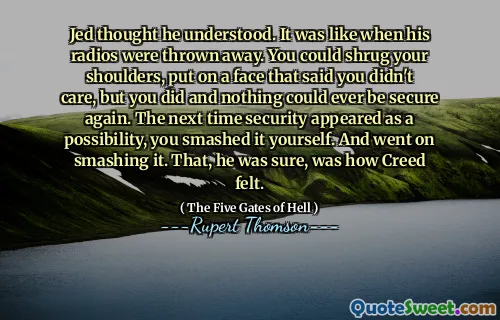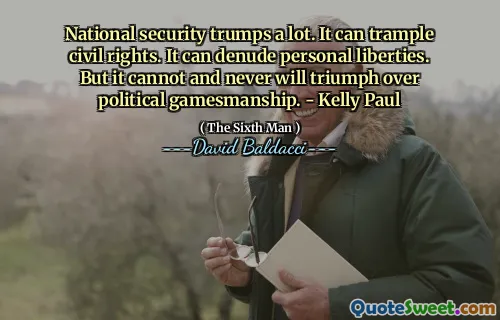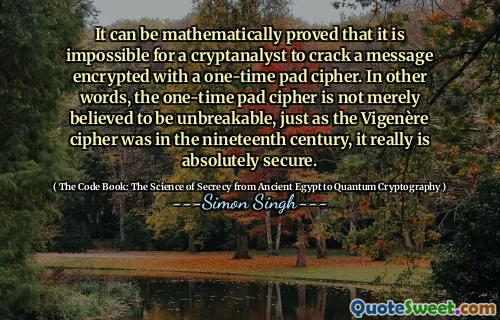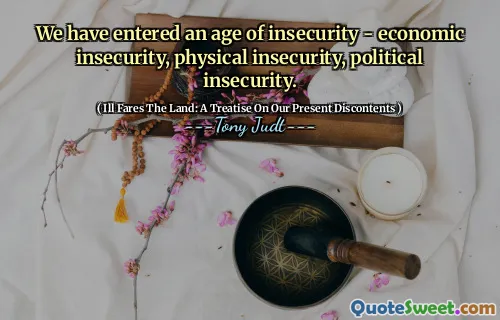
Jed thought he understood. It was like when his radios were thrown away. You could shrug your shoulders, put on a face that said you didn't care, but you did and nothing could ever be secure again. The next time security appeared as a possibility, you smashed it yourself. And went on smashing it. That, he was sure, was how Creed felt.
This quote delves into the nuanced human experience of loss and the fragile nature of security in our emotional world. Jed's reflection captures a universal truth: when we suffer a loss that shakes our sense of stability, such as even the symbolic act of having his radios thrown away, the repercussions go far beyond the immediate event. The external possessions, like radios, symbolize familiarity and comfort. Once taken from us, they underline the vulnerability and the elusive quality of security.
The shrugging off of emotions, the facade of indifference, is something many adopt as a protective mechanism. Yet, beneath the surface, the emotional truth remains. The statement 'nothing could ever be secure again' poignantly amplifies the psychological impact of loss—how past traumas condition individuals to dismantle any future prospects of safety or stability proactively, fearing recurrence of hurt. This self-sabotage can perpetuate cycles of insecurity and emotional isolation.
Jed’s insight into how Creed might feel bridges a connection of shared human suffering and recognition of coping mechanisms. It highlights an intrinsic paradox: the very effort to shield oneself from pain can paradoxically deepen it. The metaphor of smashing security whenever it appears also indicates a resignation or helplessness—an unconscious belief that stability is temporary and ultimately unattainable.
In essence, this passage speaks to the complexity of emotional resilience—or the lack thereof—and the ways individuals internalize loss, shaping their future engagements with the world. It articulates the difficulty of rebuilding trust in life's security after it has been fractured, a theme that resonates deeply within the human condition.





